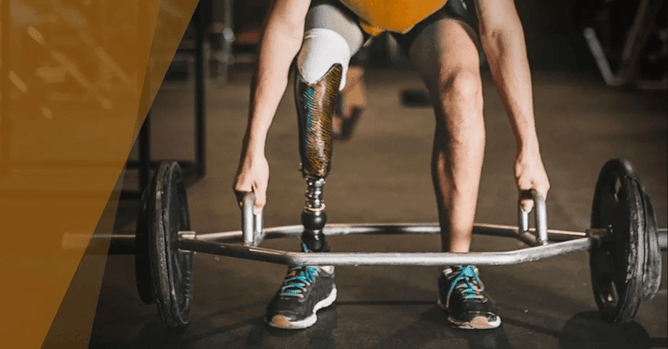Exercise is an essential component of maintaining good health for people with disabilities. Regular physical activity can help improve physical function, reduce the risk of chronic diseases, and promote overall well-being.
Physical function: Exercise can help improve muscle strength, flexibility, and endurance, which can make it easier for people with disabilities to perform daily activities such as dressing, grooming, and moving around. Regular physical activity can also improve balance and coordination, which can reduce the risk of falls and other accidents.
Chronic disease management: Many people with disabilities have higher rates of chronic health conditions such as diabetes, heart disease, and obesity. Exercise can play a key role in managing these conditions. It can help lower blood sugar levels, lower blood pressure and improve cholesterol levels, which can reduce the risk of heart disease. Exercise can also help people with disabilities lose weight and maintain a healthy weight, which can help reduce the risk of obesity related health problems.
Mental health: Exercise can also have a positive impact on mental health. Regular physical activity can help reduce stress, anxiety, and depression, and improve mood and self-esteem. It can also help improve sleep quality and cognitive function.
Socialisation: Exercise can also provide a valuable opportunity for socialisation and interaction for people with disabilities. Joining a group fitness class or participating in a sports team can help people with disabilities form connections and relationships with others who share similar interests and challenges.
Despite all these benefits, people with disabilities often face barriers that make it difficult for them to participate in regular physical activity. However, these barriers can be overcome by working with qualified exercise professionals such as Exercise Physiologists. They are trained to work with people with disabilities to create safe and effective exercise programs that are tailored to the individual's specific needs and abilities. Exercise Physiologists can also provide education and support to help individuals overcome any barriers to physical activity.
In conclusion, regular physical activity is essential for maintaining good health for people with disabilities. Exercise can help improve physical function, reduce the risk of chronic disease, and promote overall well-being. However, people with disabilities often face barriers that make it difficult for them to participate in regular physical activity, but with the help of qualified exercise professionals, these barriers can be overcome. It is important for people with disabilities to have access to safe, effective and appropriate exercise programs tailored to their specific needs and abilities to maximise the benefits of exercise.
Contact Holistic Health today to get personalised Perth exercise physiology guidance for your health journey.
